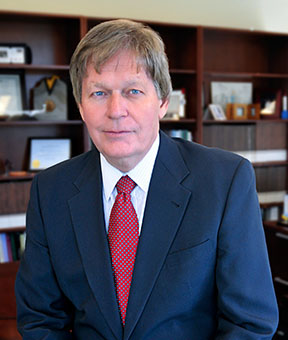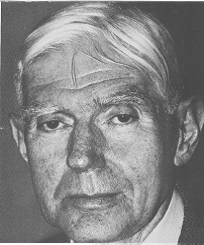The 37th Annual Karl F. Herzfeld Memorial Lecture
“Societal and Economic Impacts of Space Weather”
Daniel Baker
Professor, Director
Laboratory for Atmospheric and Space Physics
University of Colorado Boulder
Boulder, Colorado
Thursday, April 25, 2019 - 4:00 PM
Karl Herzfeld Auditorium of Hannan Hall - Rm 108
This talk describes space weather impacts and their economic and societal costs. Modern technological society is characterized by a complex set of interdependencies among its critical infrastructures. These are vulnerable to the effects of intense geomagnetic storms and solar storms. S trong currents flowing in the ionosphere can disrupt and damage Earth-based electric power grids and contribute to the accelerated corrosion of oil and gas pipelines. Magnetic storm-driven ionospheric disturbances interfere with high-frequency radio communications and navigation signals from Global Positioning System (GPS) satellites. Exposure of spacecraft to solar particles and radiation belt enhancements can cause temporary operational anomalies, damage critical electronics, degrade solar arrays, and blind optical systems such as imagers and star trackers. Moreover, intense solar particle events present a significant radiation hazard for astronauts during the high-latitude segment of the International Space Station (ISS) orbit as well as for future human explorers of the Moon and Mars. In addition to such direct effects as spacecraft anomalies or power grid outages, a thorough assessment of the impact of space weather events on present-day society must include the collateral effects of space-weather-driven technology failures. For example, polar cap absorption events due to solar particles can degrade – and, during severe events, completely black out – radio communications along transpolar aviation routes. A complete picture of the socioeconomic impact of space weather must include both direct, as well as collateral, effects of space-weather-driven technology failures on dependent infrastructures and services. It is also imperative that we—as a technological society—develop a truly operational space weather observing and modeling system in which the benefits of accurate forecasts are clearly established.
trong currents flowing in the ionosphere can disrupt and damage Earth-based electric power grids and contribute to the accelerated corrosion of oil and gas pipelines. Magnetic storm-driven ionospheric disturbances interfere with high-frequency radio communications and navigation signals from Global Positioning System (GPS) satellites. Exposure of spacecraft to solar particles and radiation belt enhancements can cause temporary operational anomalies, damage critical electronics, degrade solar arrays, and blind optical systems such as imagers and star trackers. Moreover, intense solar particle events present a significant radiation hazard for astronauts during the high-latitude segment of the International Space Station (ISS) orbit as well as for future human explorers of the Moon and Mars. In addition to such direct effects as spacecraft anomalies or power grid outages, a thorough assessment of the impact of space weather events on present-day society must include the collateral effects of space-weather-driven technology failures. For example, polar cap absorption events due to solar particles can degrade – and, during severe events, completely black out – radio communications along transpolar aviation routes. A complete picture of the socioeconomic impact of space weather must include both direct, as well as collateral, effects of space-weather-driven technology failures on dependent infrastructures and services. It is also imperative that we—as a technological society—develop a truly operational space weather observing and modeling system in which the benefits of accurate forecasts are clearly established.
Reception Immediately Follows the Lecture
If you have any questions about the Herzfeld Lecture or would like to make a donation to the Herzfeld Lecture Memorial Fund please contact the Department of Physics, CUA-Physics@cua.edu or (202) 319-5315.
-

Karl Herzfeld
The lecture series is named after Karl Herzfeld, former professor and chair of the Department of Physics.
Learn More
